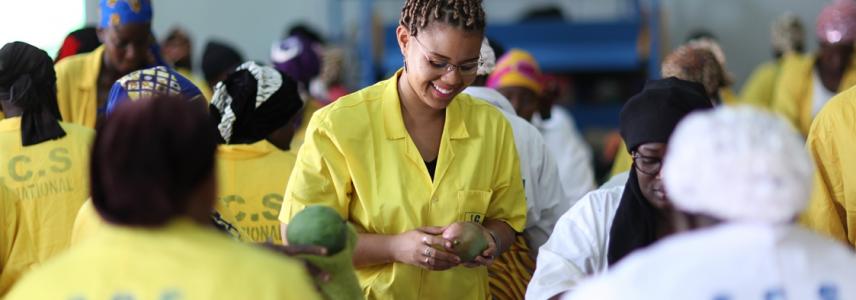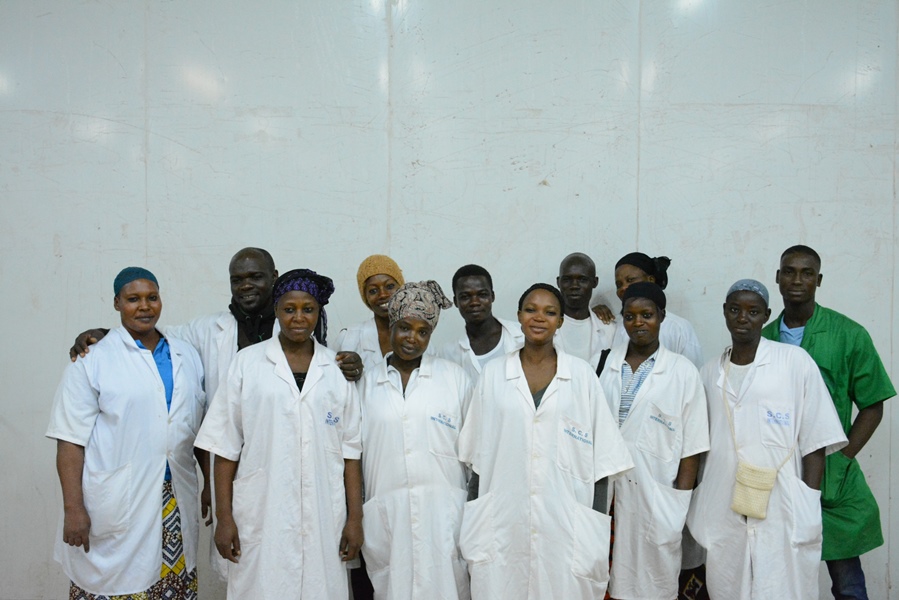Mali’s mangoes link rural farmers to global markets – and a better future

Known as the king of fruit, mangoes have become one of the world’s most popular fresh tropical fruits. As demand grows, so do the export opportunities for West African countries like Mali. With help from CBI, Malian company SCS International is helping hundreds of rural farmers – many of whom are women – to step up and boost their businesses, families and communities.
Founded in 1999, SCS International started with a group of 20 farmers, helping them to form a cooperative. Since then, the model has grown into a network of 850 producers, with 40 permanent employees and around 350 seasonal workers. The cooperative’s main goal is to help these producers reach international markets and boost local incomes. SCS exports 1,500 tons of mangoes a year. Managing Director Marlene Amegankpoe explains: ‘Because of the unique taste and health benefits of mangoes, demand is high, but so are international market entry barriers. Our role at SCS is to monitor and train farmers to meet the standards, to arrange and pay for certifications like Global GAP and the Business social compliance initiative, BSCI, and to handle, pack and distribute the fruit.’
Accessing European supermarkets
As SCS’s production and export capacity increased in recent years, the company naturally turned to Europe as a guaranteed market for its products. Brazil and Peru are currently Europe’s largest mango suppliers, but with demand exceeding supplies, Mali and other West African countries are also staking their claim.
In order to get support in meeting Europe’s tough demands, the cooperative joined CBI’s Fresh Fruit and Vegetables West Africa programme in 2012. Marlene: ‘CBI helped us analyse our company and our market and thus to gain a more thorough understanding of opportunities, threats, strengths and weaknesses. It has made us far more effective.’ CBI was also instrumental in SCS’s success in targeting the Netherlands as a leading mango importing country and fruit trading hub and in getting more visibility by enabling the cooperative to participate in European trade fairs, like Fruit Logistica.
Helping young entrepreneurs
The export boom is benefiting rural farms and communities in numerous ways. ‘For one thing,’ says Marlene, ‘we are now able to support producers and young entrepreneurs in replicating our export model. Also, SCS has been able to invest in several key projects.’ These include a collective packaging facility, a second operations site and a new 50-hectare mango orchard. The orchard will serve as a model for other producers, showing them how to comply with international standards for mango production.
A starring role for women
The cooperative’s use of solar energy to run these new facilities is evidence of a growing keenness to embrace Corporate Social Responsibility (CSR) in as many ways as possible. Another strong CSR factor is that in SCS International’s vision, women play a starring role. Marlene explains: ‘There are a lot of women in the fruit business: 50% of our seasonal employees are female. But very few of them work at management level or know how to run a business. The farms they operate are small, with little growth potential. For these women, accessing training and support is one of the greatest challenges. We encourage them to get every kind of training they can. SCS wants to help them turn their small businesses into well-organised companies that can really give back to the local community in terms of jobs, redistributed revenues and improved living conditions. To me, this is the best part of the business. We are the link between a rural world and a faraway market. It’s challenging, but rewarding, too, as it is a way of contributing to the wellbeing of hundreds of producers and their families.’
